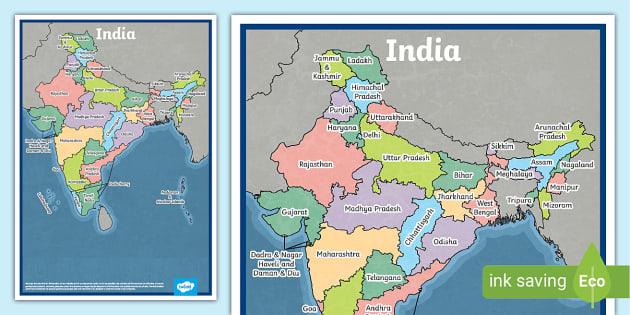Indian Prime Minister Narendra Modi has undertaken a strategic push to strengthen ties with the Maldives amid growing concerns over China’s expanding influence in the Indian Ocean region. As Beijing deepens its investments and diplomatic presence in the island nation, New Delhi aims to reaffirm its traditional role as a key partner and security anchor in the strategically important archipelago. Modi’s latest visit underscores India’s broader efforts to counterbalance China’s footprint and bolster regional stability through enhanced economic cooperation and security collaboration with the Maldives.
India Strengthens Strategic Partnership with Maldives Amid Increasing Chinese Influence
India is ramping up its diplomatic and economic engagement with the Maldives, reflecting a strategic response to the expanding footprint of China in the Indian Ocean region. Recent high-level visits and agreements underscore New Delhi’s resolve to deepen cooperation across multiple sectors, including infrastructure development, security, and tourism. This renewed focus on the Maldives is part of India’s broader Indo-Pacific strategy aimed at fostering stability and counterbalancing China’s Belt and Road Initiative (BRI) activities in South Asia.
Key areas of collaboration include:
- Joint maritime security patrols to ensure safe and open sea lanes
- Development of critical infrastructure such as airports and harbors
- Enhancement of healthcare and educational partnerships
- Economic investments promoting sustainable tourism
| Sector | India’s Commitment | Maldives’ Benefit |
|---|---|---|
| Security | Maritime joint exercises | Enhanced surveillance & defense capabilities |
| Infrastructure | Funding & technical support | Modernized airports & ports |
| Healthcare | Medical aid & training programs | Improved public health services |
Exploring Economic and Security Dimensions of Modi’s Maldives Visit
Prime Minister Narendra Modi’s recent visit to the Maldives marks a pivotal stride in fortifying India’s foothold amidst increasing geopolitical tensions in the Indian Ocean region. Economic cooperation took center stage during the discussions, with an emphasis on enhancing connectivity, infrastructure, and sustainable development projects. Key highlights included agreements to boost maritime trade routes and expand joint ventures in renewable energy, focusing on solar and wind power initiatives vital to Maldives’ future energy security.
The security framework also received substantial attention, underscoring India’s commitment to safeguarding its strategic interests in close collaboration with the Maldivian government. The two nations agreed to intensify intelligence sharing, joint maritime patrols, and counter-terrorism operations.
- Enhancement of coastal surveillance systems using advanced satellite technologies
- Expansion of naval exercises to address emerging maritime threats
- Collaboration on disaster management, especially cyclone and tsunami preparedness
| Focus Area | Projected Goal | Expected Timeline |
|---|---|---|
| Maritime Security Cooperation | Increase patrol frequency by 40% | By 2025 |
| Renewable Energy Projects | Installation of 50 MW solar capacity | Next 3 Years |
| Trade Infrastructure | Modernization of ports and logistics | Within 5 Years |
Recommendations for Enhancing Regional Stability through Indo-Maldivian Cooperation
To fortify stability in the strategically pivotal Indian Ocean region, a multifaceted approach centered on Indo-Maldivian cooperation is essential. Prioritizing enhanced maritime security agreements can serve as a deterrent to extraregional influences, ensuring safe and open sea lanes crucial for trade and energy transit. Moreover, bolstering joint disaster management frameworks will significantly reduce vulnerability to natural calamities, a persistent threat to the Maldives’ low-lying geography. Collaborative infrastructure projects that focus on sustainable development must also be intensified, leveraging India’s expertise in renewable energy and digital connectivity to support the Maldives’ growth aspirations.
Emphasizing people-to-people ties remains another cornerstone. Expanding educational exchange programs and healthcare collaborations will not only deepen bilateral goodwill but also create a resilient socio-cultural bond. The following table illustrates key sectors where India and the Maldives can amplify cooperation to secure regional stability:
| Sector | Cooperation Mode | Potential Impact |
|---|---|---|
| Maritime Security | Joint Naval Exercises & Surveillance | Enhanced deterrence against illegal activities |
| Disaster Management | Shared Early Warning Systems | Minimized disaster aftermath |
| Renewable Energy | Solar and Wind Projects | Reduced carbon footprint, sustainable growth |
| Healthcare | Medical Training & Telemedicine | Improved health outcomes |
| Education | Scholarships & Skill Development | Stronger cultural and knowledge exchange |
Final Thoughts
As India intensifies its diplomatic and economic engagement with the Maldives, Prime Minister Narendra Modi’s efforts underscore New Delhi’s strategic intent to reinforce its influence in the Indian Ocean region amid China’s expanding footprint. The evolving Maldives-India partnership not only reflects shared security and development interests but also signals a broader regional contest for sway in South Asia’s maritime corridor. How this dynamic unfolds will remain a key focus for policymakers and analysts monitoring the shifting balance of power in the Indo-Pacific.




